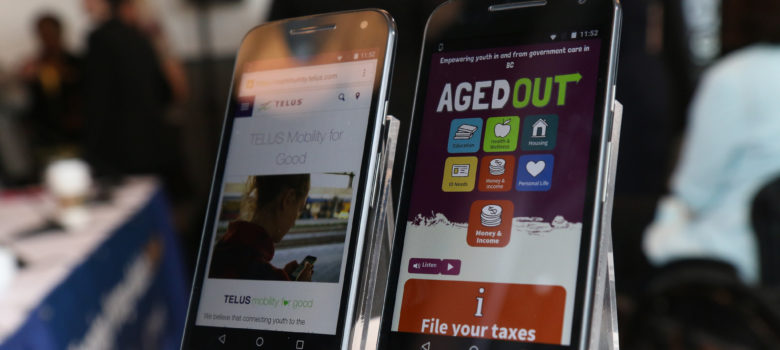Earlier this year, the Liberal government granted approval for the merger between BCE and MTS, eroding the competitive wireless market in Manitoba. In response, I argued in the Globe and Mail:
The Conservative government was criticized for failing to fix Canada’s uncompetitive wireless market, but at least it recognized the problem and did not shy away from challenging the Big Three. By contrast, Mr. Bains was faced with a sure thing – higher wireless prices for consumers and a less competitive, innovative marketplace – and blinked. Unless there are some new pro-competitive policies on wireless yet to come, the approval of the BCE-MTS merger guarantees that the government’s innovation strategy will start with a weak foundation.
It turns out, there was more to come. This week, Innovation, Science and Economic Development Minister Navdeep Bains put the wireless market back in the spotlight with a speech that left little doubt that the Liberal government has reached the same conclusion as its predecessor, namely that the Canadian wireless market continues to be marked by insufficient competition leading to high prices, low adoption rates, and a lack of affordability for consumers with low household income.
The government’s first step toward addressing the issue is an order-in-council requiring the CRTC to review a recent decision involving how regional and smaller wireless companies access wholesale roaming services from larger providers. While much of the attention has focused on the potential impact of varying that decision, the far more important takeaways come from the language found in the order, which presumably reflect the views of the government.
The government leaves no doubt that it believes the current market offers too little choice, leading to high prices and low adoption rates for wireless services (particularly for low-income Canadians). The order states:
Whereas Canadians continue to pay high rates for mobile wireless telecommunications services;
Whereas Canada has among the lowest adoption rates for mobile wireless telecommunications services among industrialized countries;
Whereas Canadians with low household income in particular face challenges related to the affordability of telecommunications services;
The government not only makes its views on the state of the wireless market clear, it also points to its preferred solution: new competitors such as MVNOs or mobile virtual network operators. MVNOs offer the potential to bring new competitors in the market and while the CRTC stopped short of creating a regulatory framework to support their entry, the government clearly views it as part of the solution. The order also states:
Whereas the Governor in Council recognizes that the Commission has previously determined that it would not be appropriate to mandate wireless carriers to provide Mobile Virtual Network Operators with wholesale access to their networks, as doing so could negatively impact investment in wireless network infrastructure;
Whereas the Governor in Council considers that innovative business models and technological solutions can result in more meaningful choices for Canadian consumers, especially those with low incomes who are not well served by current market offerings
The order asks the CRTC to reconsider whether the benefits of new, non-traditional service providers (including providers that emphasize WiFi connectivity) outweigh concerns with respect to network investment (which the government believes can be managed with appropriate regulatory conditions).
The Bains speech sent other signals to the CRTC such as the need to ban phone unlock fees, but at its heart, it provides the foundation for future wireless policies. The Liberal government may have approved the Bell-MTS merger, but it has signalled that it recognizes that Canadians pay high prices for wireless services relative to other developed countries and that further regulatory measures are needed to foster a more competitive marketplace.









I have maintained for a long time now that the only reachable solution for competition in the wireless market in Canada is MVNOs.
The ultimate problem in Canada is that it is just entirely too-prohibitively expensive to build a nation-wide wireless network without being squashed out by the oligopoly that they have to try to compete with while building that network.
The answer is to allow them to utilise existing network(s) in the form of wholesale access (and some might further argue “while they hopefully build their own network”). It has done wonders for the wire-line service competition here.
But frankly, how many wireless networks do we need overlapping and competing for spectrum — all competing for densely populated areas while starving the rural areas?
“The network” is not where competition should be happening. It should be happening based on the services, and pricing, etc. that ride on that network.
Canada really only needs one really (really!) good wireless network, run as a shared resource by some non-profit body. Imagine how good a single wireless network would be if it had the investment of the 3 or 4 that we currently have behind it.
Then all carriers would be “MVNO”s, leasing network access from the non-profit body and competing based on services, and pricing, and whatever else — but not on who has the best signal in any one given location.
That’s how it started out right, all our big telcos (except maybe Rogers and Videotron, I’m not sure) were once crown corporations. Your taxes paid for the infrastructure they now horde (can’t blame them now that they’re private companies). The government was definitely short-sighted when it made them private, they should have at least protected the infrastructure and ensured wholesale access from the beginning.
Waiting. Waiting. Waiting. Waiting. We waited 10 years for the Harper government to do something. Nothing. We are now in the second year of the Trudeau government. Nothing.
Nothing. Nothing. Nothing. Decades are going by with nothing. No change. Meanwhile the whole rest of the world has what we don’t have. Cheap cheap powerful internet. This is actually insane.
I am in Europe now where for 12 Euros with MVNO Lycamobile you can get unlimited everything all over Europe for 30 days. WTF is wrong wit us in Canada?
really…my kids figured this out…and these “intelligent” leaders are not cluing in!!! so halarious!!!!
Mojo – perhaps your “kids” could help with online comments before you post them; halarious?, is not a word – hilarious is however.